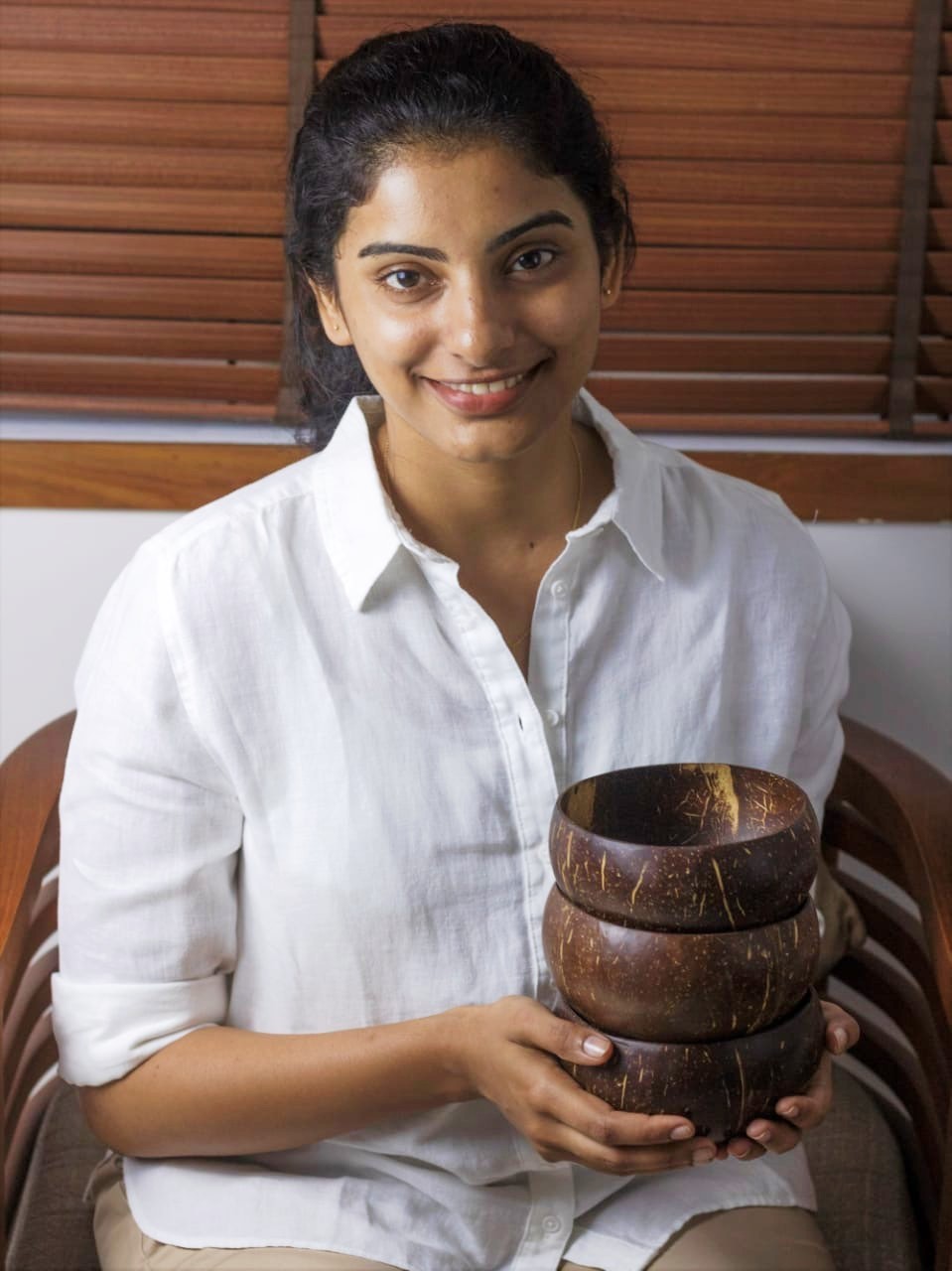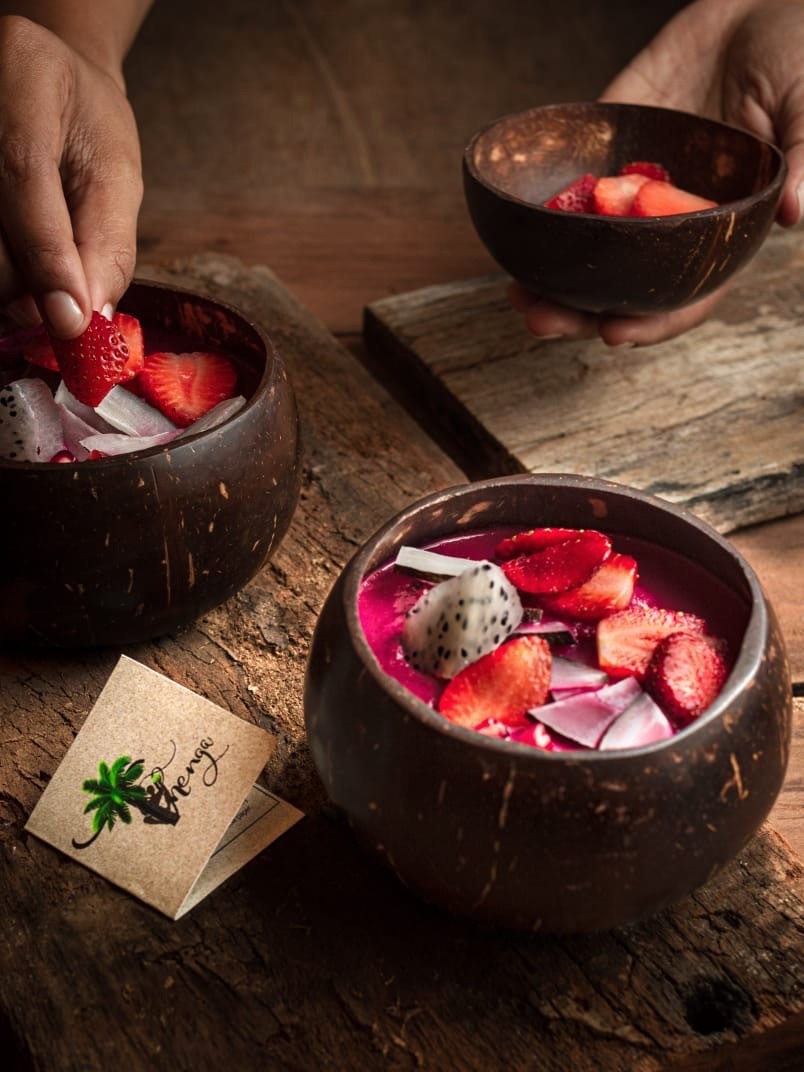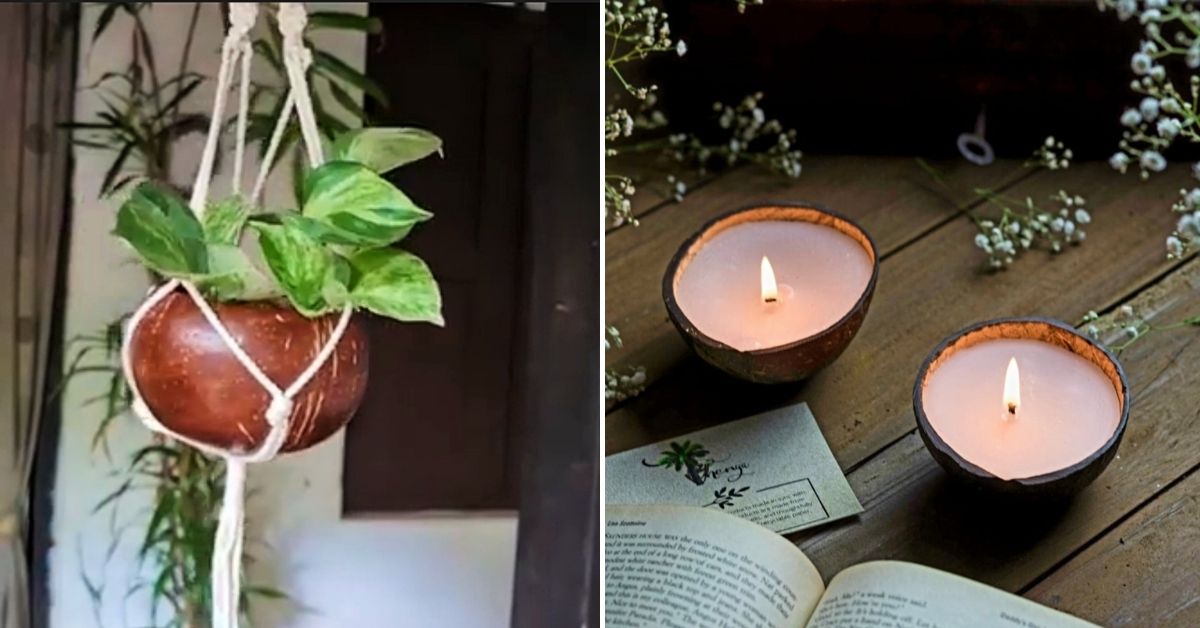“It has been my childhood dream to start a business of my own but I did not have an idea about what it could be,” begins Maria Kuriakose, a resident of Thrissur, Kerala, who quit her job in 2019 at a social enterprise in Mumbai.
“After completing my Masters in Business Administration in 2017, I went on to work with a corporate company. I quit that job within one year because I wanted to work at a place that empowered the underprivileged. So I joined a social enterprise that worked with women in slums to make sustainable sanitary pads,” says the 26-year-old.
However, a visit to a coconut oil mill in Thrissur gave her the much-needed inspiration for her business.
“Coconuts are a versatile crop, where every part can be utilised. But I noticed that the coconut shells were being discarded. Researching further, I understood that a few businesses use them to make activated charcoal, else they’re burned as fuel. Earlier, several artisans around Kerala used the shells to make ladles for serving food. Today, these products don’t find much value and the artisans practising the craft have also reduced,” says Maria.
This led to the launch of a homegrown brand named Thenga, which means coconut, that has sold over 8,000 coconut shell-based products.

Earning From Waste
In 2019, once Maria decided to sell coconut-shell based products, she spoke to artisans and experts who were making its byproducts. She spent a few months understanding how the shells were sorted and how the final product is made.
“I learnt that to make products from coconut shells certain machinery was required. This is mainly to scrub the outer and inner parts of the shell to give it a smooth finish,” says Maria.
However, she did not want to put in a large investment on purchasing machinery just for doing a trial run. This is when her 65-year-old father, Kuriakose Varoo, stepped in to help. Being a retired engineer, he knew what was needed to make a low-cost version of the machine.
“By purchasing the spare parts at a hardware store, my father recreated the sanding machines required to smoothen the inner and outer parts of the coconut shell within a few days. My mother, Jolly Kuriakose, also helped by sourcing various sizes of coconut shells from our backyard and an oil mill nearby,” says Maria, adding that she spent this time reaching out to businesses who were willing to buy bowls made of coconut shells from her.
After identifying a few businesses, whom she did not wish to name, Maria made a few bowls at home. As an added advantage, she also printed business logos on them.
“The laser printing was done by a third party company that prints on wooden products. As the final step, the shells were polished with coconut oil instead of chemical-based products like varnish,” says Maria.

Once the orders were delivered, the feedback she received was overwhelmingly positive. If a client highlights any breakage issues, Maria ensures they are immediately replaced, free-of-charge.
Apart from selling to businesses, the bowls are directly sold to customers over e-commerce platforms and her social media pages.
A Bowl For Your Smoothie
Once Maria started receiving more orders, she struggled to find the right size of shells and make the bowls. Though her parents helped with completing orders, she felt it was a hassle to manufacture all the products at home, and wanted to spend time on marketing the business and innovating new products.
“So, I reached out to a few artisans in Thrissur, Kottayam and Wayanad who were making ladles from coconut shells. These artisans primarily do odd jobs like construction to earn a living, but they continue practising their craft on the side. After explaining about the products made at Thenga, 10 of the artisans were onboard,” says Maria.

The artisans had the machinery and only needed to be briefed on what kind of shells to use to maintain the size of the bowls and not use any chemical-based product for adding the glossy finish.
With their help, Maria was able to take on more orders and expand the range of available products. By the end of 2020, Thenga had four sizes of bowl, the smallest one being 150ml priced at Rs 250 and the largest being 900 ml used for serving salads priced at Rs 950. They also introduced teacups, candles, cutlery and hanging planters.

“The bowls can be used for soups or cold food like smoothies. The candles are coconut-flavoured and handmade by me,” says Maria, adding that the business has sold over 8,000 products and continues to receive orders from Tamil Nadu, Karnataka and Kerala.
“In a few months, the products will also be launched in Germany through Amazon,” says Maria.
If you wish to buy Thenga products, check them out on Amazon, Instagram, or Facebook.
Edited by Yoshita Rao
No comments:
Post a Comment